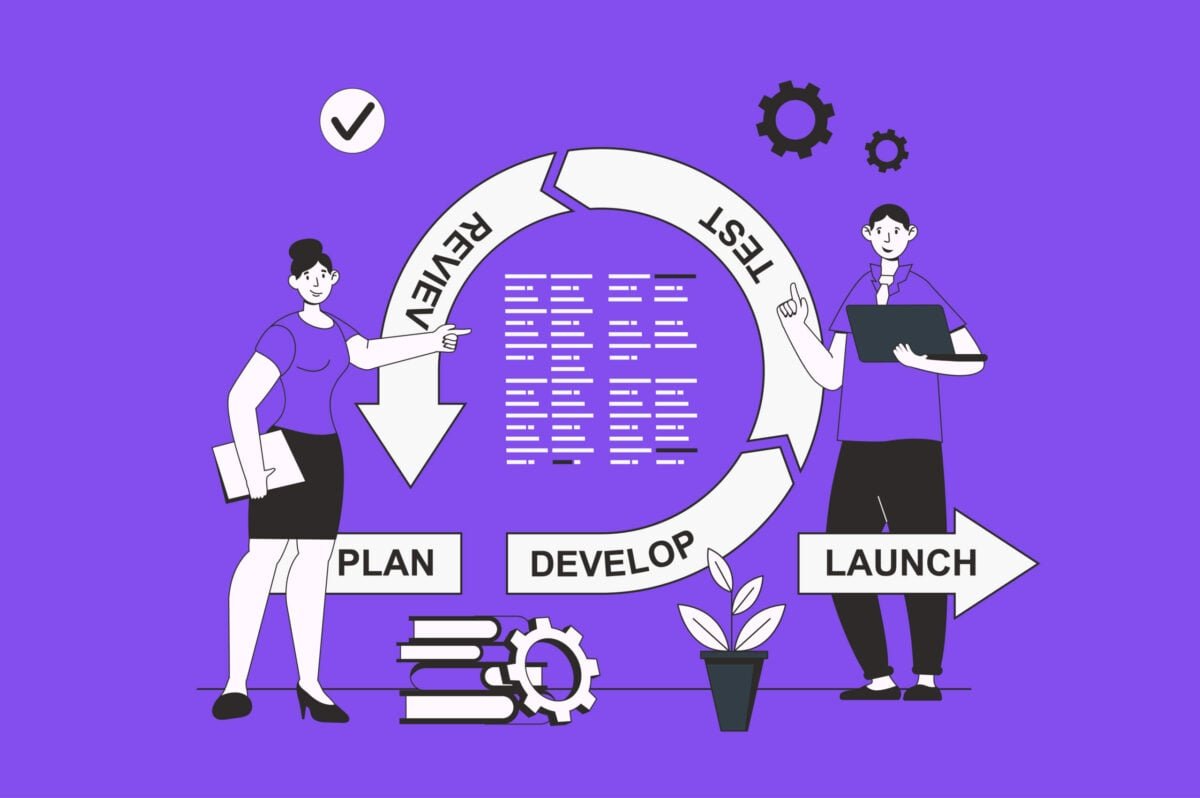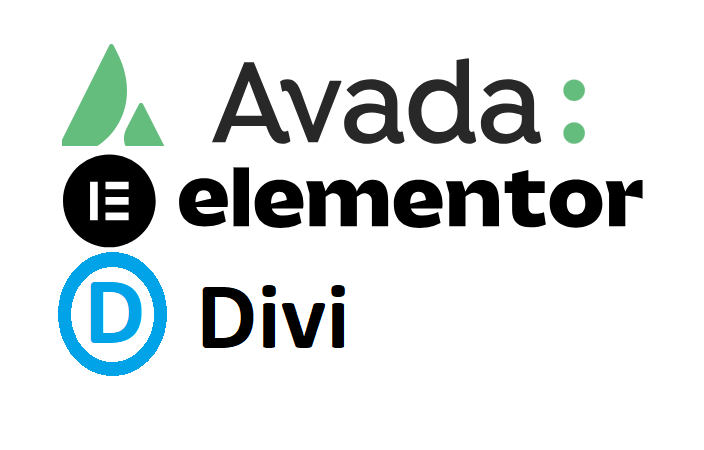Continuous Deployment (CD) stands as a cornerstone in the realm of modern software development, revolutionizing the way applications are delivered and maintained. It represents the automated and rapid process of continuously releasing code changes to production environments. In today’s dynamic landscape, the importance of robust CI/CD practices, underpinned by sophisticated Continuous Deployment Tools, has magnified significantly. These tools streamline the software delivery pipeline, fostering agility, reliability, and efficiency in deploying software changes. Embracing these tools has become pivotal for software teams seeking to outpace competition, minimize time-to-market, and deliver top-quality products in the ever-evolving tech sphere.
Table of Contents
ToggleWhat (and Why) is Continuous Deployment?
Continuous Deployment (CD) is a software development practice that focuses on automating the release process, enabling frequent and reliable deployments of code changes to production environments. It’s a natural extension of Continuous Integration (CI) and Continuous Delivery (CD), where code changes are integrated, tested, and prepared for deployment automatically.
In CD, every validated code change that passes through the CI pipeline undergoes an automated deployment process, swiftly making its way to production without manual intervention. This practice allows software development teams to push code changes—ranging from small fixes to new features—into the hands of users in a controlled and efficient manner.
The significance of Continuous Deployment lies in its ability to accelerate the software delivery cycle while maintaining high-quality standards. By automating the deployment process, CD minimizes human error, enhances consistency in releases, and ensures that validated changes reach end-users swiftly. This agility not only improves the speed of innovation but also enables organizations to respond rapidly to market demands and user feedback, staying competitive in today’s fast-paced digital landscape.
Also Read: What Is the Average Salary of a Life Coach in 2024?
Top 10 Continuous Deployment Tools (CI/CD) In 2024
1. DeployBot
DeployBot is a deployment automation tool that simplifies the process of deploying code changes across different environments. It supports various integrations and facilitates seamless deployment from repositories to servers, providing a centralized platform for collaboration and managing deployment pipelines.
Key Features:
- Ease of Use: User-friendly interface for effortless setup and deployment configurations.
- Integration: Integrates with GitHub, Bitbucket, GitLab, and other popular repositories.
- Automation: Automated deployments based on triggers like commits, merges, or manual triggers.
- Collaboration: Facilitates team collaboration with role-based access control and notifications.
- Environment Management: Allows managing multiple environments and rollback options.
2. GitLab CI/CD
GitLab CI/CD is an integral part of the GitLab platform, providing a complete DevOps lifecycle toolset in a single application. It streamlines the development and deployment process, enabling automated testing, building, and deploying applications.
Key Features:
- Integration: Native integration with GitLab repositories for a seamless CI/CD experience.
- Auto DevOps: Automated CI/CD configuration based on best practices.
- Scalability: Scales with projects, providing parallel testing and multi-language support.
- Pipeline Visualization: Clear visualization of CI/CD pipelines for monitoring and debugging.
- Container Registry: Built-in container registry for Docker images and Kubernetes deployment.
Also Read: 8 Best WordPress Themes for Auto Repair Services in 2024
3. AWS CodeDeploy
AWS CodeDeploy is a fully managed deployment service by Amazon Web Services (AWS), allowing automated deployments to various compute services like EC2 instances, Lambda functions, and more.
Key Features:
- Multi-Platform Deployment: Supports deploying applications on diverse platforms.
- Auto Scaling Integration: Integrates with AWS Auto Scaling for seamless scaling of instances.
- Deployment Configurations: Flexible deployment configurations and monitoring options.
- GitHub Integration: Connects with GitHub repositories for streamlined deployments.
- Rollback Capabilities: Easy rollback to the previous version in case of issues.
4. Octopus Deploy
Octopus Deploy is an automated deployment tool designed to simplify and streamline the process of deploying applications and services across various environments. It provides a centralized platform for managing and automating complex deployment scenarios.
Key Features:
- Deployment Automation: Automates deployment processes for applications across multiple environments.
- Multi-Platform Support: Offers support for deploying to diverse platforms and infrastructures.
- Access Control and Security: Provides robust access control mechanisms ensuring secure deployments.
- Integration Capabilities: Integrates with a wide array of tools and platforms, facilitating seamless workflows.
- Release Management: Enables efficient versioning and management of releases.
Also Read: The Ultimate Guide to WooCommerce Bookings Plugins for Seamless Appointment Management
5. Bamboo Deploy:
Bamboo Deploy, by Atlassian, is a continuous integration and deployment server that automates the release management for applications. It integrates with other Atlassian suite tools for comprehensive project management.
Key Features:
- Build Pipelines: Creates efficient build pipelines with automated deployment capabilities.
- Atlassian Integration: Seamlessly integrates with other Atlassian tools for comprehensive project management.
- Customizable Deployment Strategies: Provides flexibility in defining and customizing deployment strategies.
- Support for Docker: Offers support for Docker containers in the build and deployment process.
- Analytics and Insights: Generates insights and analytics to optimize the development pipeline.
6. CircleCI
CircleCI is a cloud-based CI/CD platform that automates the software development process, offering flexibility and scalability in building, testing, and deploying code.
Key Features:
- Parallel Builds: Allows running parallel builds, enhancing speed and efficiency in the CI/CD pipeline.
- Cloud-Based Infrastructure: Operates as a cloud-based platform, reducing infrastructure maintenance overhead.
- Orb Marketplace: Provides reusable configuration packages in the Orb Marketplace for enhanced functionality.
- Version Control Integration: Integrates seamlessly with various Version Control Systems for streamlined workflows.
- Customizable Workflows: This enables defining custom workflows tailored to specific project needs.
Also Read: Elevate Lead Generation: 25 Best Conversion Rate Optimization Tools of 2024
7. Jenkins
Jenkins is an open-source automation server that facilitates continuous integration and continuous delivery (CI/CD) of software projects. It’s highly extensible and is primarily used for building, testing, and deploying code changes.
Key Features:
- Extensive plugin ecosystem for integration with various tools and technologies.
- Distributed builds for scaling across multiple machines.
- Easy setup and configuration due to its open-source nature.
- Robust community support and a vast library of extensions.
- Highly customizable with a user-friendly interface for building and deploying code changes.
8. TeamCity
TeamCity, developed by JetBrains, is a sophisticated CI/CD server that offers comprehensive capabilities for building, testing, and deploying software. It supports a variety of platforms, languages, and frameworks.
Key Features:
- Comprehensive CI/CD server with support for multiple build configurations.
- Extensive integration capabilities with various IDEs and tools.
- Advanced features for building and deploying across multiple platforms.
- User-friendly web interface for configuring and managing build pipelines.
- Strong support for Docker and cloud-based deployments.
Also Read: Best Event Registration WordPress Plugins In 2024
9. Travis CI
Travis CI is a cloud-based CI/CD platform designed to automate software builds and tests. It seamlessly integrates with GitHub repositories, allowing developers to easily set up and configure continuous integration workflows.
Key Features:
- Cloud-based CI/CD platform for automating builds and tests.
- Seamless integration with GitHub repositories for effortless setup.
- Supports a wide array of programming languages and frameworks.
- Customizable build configurations using YAML files.
- Concurrent testing and multi-OS support for diverse development environments.
10. Azure DevOps
Azure DevOps, a comprehensive platform by Microsoft, encompasses a range of tools and services for software development and collaboration. It provides robust CI/CD capabilities alongside version control and project management functionalities.
Key Features:
- All-in-one platform offering CI/CD pipelines, version control, and project management tools.
- Seamless integration with Microsoft ecosystem and diverse third-party tools.
- Robust security features and compliance with industry standards.
- Automated testing, monitoring, and deployment capabilities.
- Flexible and scalable for projects of varying sizes and complexities.
The One Right Tool for Continuous Deployment
Selecting the ideal Continuous Deployment (CD) tool hinges on project specifics, team familiarity, and ecosystem alignment. No one tool fits all needs; Jenkins offers flexibility, Azure DevOps integrates Microsoft services, TeamCity emphasizes user-friendliness, and Travis CI provides simplicity. The “right” choice depends on project intricacies and team preferences.
Also Read: Is Dropshipping Dead? Can You Still Earn Through It in 2024?
Where do Continuous Deployment Tools fit?

Continuous Deployment tools streamline the final phase of software delivery by automating the release process, ensuring swift, error-free deployment of validated code changes into production environments. They enhance efficiency, collaboration, and agility in software development.
The Perfect DevOps Pipeline for Continuous Deployment

The DevOps pipeline represents a structured approach encompassing crucial stages for effective software development, testing, and deployment. Its key components are:
Continuous Integration (CI)
Integrating code changes into a shared repository, ensuring smooth collaboration among developers.
Continuous Delivery (CD)
Streamlining the release process, and expediting code delivery to production for swift deployment.
Continuous Deployment
Automating code updates’ direct deployment to the production environment, minimizing manual intervention.
Continuous Testing
Conducting ongoing quality assurance and software tests to maintain a bug-free application.
Continuous Operations
Enable seamless operations by consistently releasing updates, patches, and bug fixes.
This structured pipeline ensures a managed and focused approach throughout the software development lifecycle, optimizing collaboration and efficiency between development and operations teams.
Conclusion
Continuous Deployment tools are indispensable assets in modern software development, streamlining the release process and ensuring swift, error-free deployment of validated code changes into production environments. These tools, integrated within robust DevOps pipelines, enhance efficiency, collaboration, and agility, enabling organizations to meet evolving market demands with reliable, high-quality software updates. Embracing these tools empowers teams to automate deployment workflows, mitigate errors, and deliver customer-centric solutions promptly, fostering a competitive edge in today’s dynamic digital landscape.
Interesting Reads:








